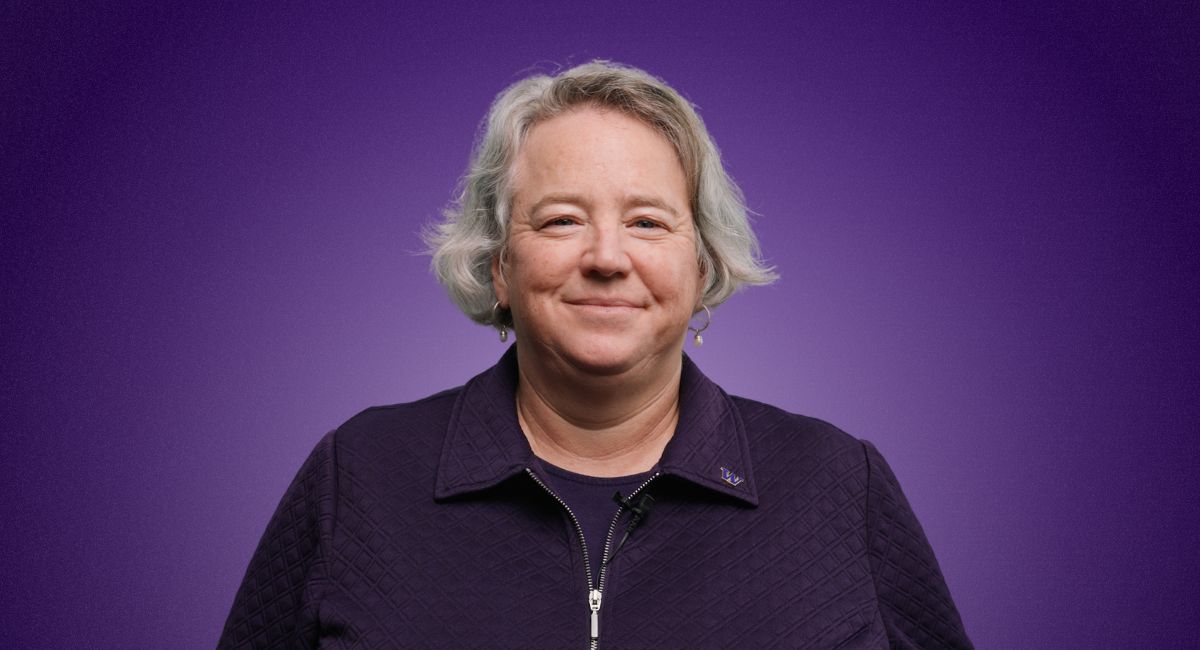
Dean Hilary Godwin shares why hope is critical amidst moments of public health crises.
There is always hope for public health.
Even amidst public health crises, University of Washington School of Public Health Dean Hilary Godwin says there are always opportunities to reenvision what a great system of public health can do.
Godwin was appointed chair of the board of the Association of Schools and Programs of Public Health (ASPPH) in March, where she will support the important work of public health research, practice and education in the U.S.
As board chair, Godwin serves the ASPPH’s leadership team, including President and CEO Laura Magaña, as well as the leaders of 155 public health member schools and institutions. The 15-member board sets association policies and strategies and provides fiduciary oversight of ASPPH.
While public health institutions and universities have faced drastic federal funding cuts this year, Godwin sees her role as providing leadership that isn’t only reactionary but forward thinking for public health’s future.
“Our job in this moment is to not just manage through the crisis but to also make sure that we're preparing the next generation of public health leaders to be able to build back a stronger and better public health system,” Godwin said.
Part of rebuilding public health includes reimagining systems that have evolved over time in a way that no one would have intentionally designed. One example of this is public health data infrastructure, Godwin said. This system is disconnected and underfunded, with local, state, and federal departments using different systems and old IT infrastructure. While Godwin emphasizes that she never would have chosen to dismantle public health systems as they are currently being undercut nationally, she also sees how this moment could provide an opportunity to build an entirely new, interconnected data system rather than trying to patch together and connect current data structures.
Today's public health students will play an essential role in this reimagining and rebuilding. As soon-to-be graduates consider their career options at a time when many public health workers are being laid off from U.S. health agencies, Godwin highlighted that the private sector can offer great learning opportunities for public health students and graduates. For instance, by working in private sector industries that already have robust data systems, alumni can learn skills that can then be translated into governmental public health roles in the future.
“We designed our degrees, particularly the undergraduate public health and MPH degrees, to be degrees that prepare people for a broad range of careers; our students go into government, private sector, nonprofits, academia,” Godwin said. “We've really focused on transferable skills and being career ready.”
However, proposed cuts to student loan programs threaten the ability to have a diverse group of public health students. It's important for public health schools to have students that come from communities experiencing significant public health challenges, Godwin said.
“The idea is that the people who come from those communities will develop the best solutions because they understand the needs of those communities and the strengths of those communities,” Godwin said.
Godwin is also concerned about how vulnerable communities will be impacted by the defunding of Medicaid and food assistance programs.
“It's hard to work on the higher-level issues if we don't have that foundational support for the most vulnerable in our country,” Godwin said. “I didn't feel like we had a great system to begin with, but to see what system we had being eroded is so painful.”
Federal funding of public health research is beneficial to communities and taxpayers because it shows which public health interventions work and are therefore cost effective to improve the health of people in this country, Godwin said.
The ASPPH community is a valuable support network for public health academic institutions during this time, Godwin said. She meets regularly with other leaders from public health schools and programs who share their experiences and strategies for leading in difficult times and for supporting faculty, staff, and students amidst a constant stream of changes and challenges.
“I really love ASPPH as an organization,” Godwin said. “Together, our schools and programs form an ecosystem for public health training and research that ensures that students have access to the training that is right for them, that public health workforce needs are met nationally and globally, and that a strong evidence base is available to help decision makers and public health professionals implement policy and programs that improve the health of populations.”
“At a time when many of us feel like public health, scientific research and higher education are under siege, ASPPH provides advocacy, resources and a supportive network that benefits all of us in academic public health,” Godwin continued. “It is a pleasure to give back to an organization and community that has done so much positive work.”